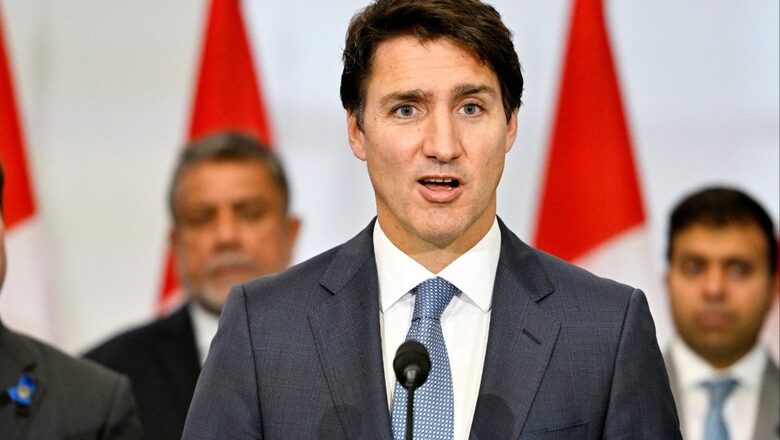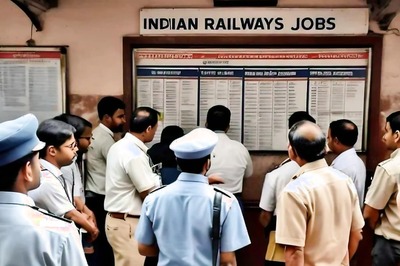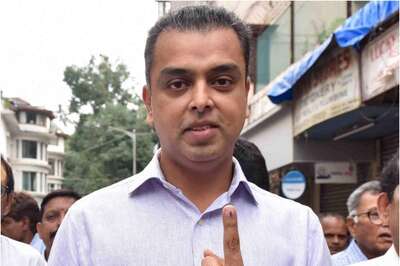
views
Prime Minister Justin Trudeau isn’t the first politician to have allowed domestic political compulsion to risk his country’s diplomatic relationship with a foreign partner. Trudeau told his country’s Parliament that India violated Canada’s sovereignty by carrying out an extra-judicial killing of a Canadian citizen. The Canadian premier’s remarks are at one with the kind of provocation Indians have come to expect from a sundry cast of Pakistani demagogues and dictators. New Delhi has thus far denied the accusation that links it to “agents” who purportedly executed a “Canadian citizen” Hardeep Singh Nijjar.
For those who may not be in the know, Nijjar was shot dead by two unknown assailants near Vancouver on June 18. Indian security establishment claims that he was active in the Khalistan Tiger Force, an organisation proscribed in India under the Unlawful Activities Prevention Act (UAPA) for aiming to “revive terrorism in Punjab”.
Immediately after making the announcement, but withholding the evidence needed to establish the bona fides of his serious claim, the Trudeau government expelled an Indian diplomat.
A flabbergasted Modi government issued an immediate denial calling the accusation “absurd” and “unsubstantiated”. Later in the day, India also gave marching orders to a senior Canadian diplomat posted to Delhi.
It isn’t known when Trudeau’s administration intends to share evidence of its so-called investigation into Nijjar’s killing with New Delhi. But Ottawa is clearly not interested in addressing New Delhi’s concerns over Canada becoming a refuge for terrorists that want Punjab (which they have long christened Khalistan) to secede from India.
While the “Khalistan project” is decades’ old and triggered a bloody insurgency in Punjab late last century, some groups based overseas mainly in the US, UK, Canada and Australia have been trying to re-ignite separatist fires. A series of Khalistan terrorists have carried out attacks, mostly political assassinations, in Punjab over the last few years. Earlier, this year, a pro-Khalistan separatist threatened to raid a police station and take hostages if his comrades in arms weren’t freed from jail.
Indian High Commissions and Hindu temples have been vandalised in the UK, Australia, and Canada. Recently, in Canada, Khalistan groups put out posters declaring a bounty on the heads of Indian diplomats amidst a parade celebrating the assassination of Prime Minister Indira Gandhi in 1984. India has assiduously documented the links of these Khalistanis to Pakistan’s deep state and to sleeper cells in India. New Delhi has reportedly shared intelligence dossiers with all the above-named countries. While most have at least verbally assured India that they will pro-actively police these groups, the Canadian government under Trudeau has been reluctant to commit.
Even when Prime Minister Modi personally appealed to Trudeau on the sidelines of the G20 summit in Delhi to curb “anti-India activities” on Canadian soil, the latter, rather defiantly and disturbingly vowed that his government would “uphold freedom of expression.”
But Trudeau is being highly economical with the truth. He’s hardly upholding a peaceful cause. A recent media report revealed that, under pressure from Sikh groups, Trudeau’s government dropped references to “Sikh extremism” from the ‘Public Report on the Terrorist Threat to Canada’ that it had itself prepared in 2018.
The report said Canada continued to face threats from “individuals inspired to commit violence based on other forms of extremism, including from…Sikh (Khalistani) extremists”. The report also noted that “some Canadians continue to support these extremist groups, including through financing”.
References to Sikh extremism in the name of the Khalistani cause were removed purely for the sake of political expediency. At the time there were four Sikhs in Trudeau’s cabinet, including the country’s defence minister. Overall, 16 Sikhs were sitting MPs. Today, the “some Canadians” who “continue to support” Khalistan groups in Canada and overseas are in fact the ones propping up the Trudeau government.
In Spring 2022, Trudeau’s Liberal Party allied with the New Democratic Party (NDP) led by Jagmeet Singh and returned to power. In October 2022, the NDP openly supported the Khalistan Referendum calling it the “basic human right of Canadian Sikhs enshrined in local and international laws”. Readers will note that Jagmeet Singh’s support is essential for Trudeau to continue as Canada’s prime minister till 2025.
With Trudeau’s approval ratings slipping, he can’t afford to risk his coalition by defying his ally and face the electorate anytime soon. The Sikh vote matters in Canada. This is demonstrated by the number of MPs from the Sikh community sitting in Canada’s Parliament.
The Khalistan issue has always been a bit of an irritant in the Indo-Canadian ties. There’s documented evidence to suggest that even Trudeau’s father Pierre, who was Prime Minister, played along with the growing Sikh separatist fringe in Canada in the late 70s and early 80s.
According to a newspaper report, Terry Milewski, a reputed Canadian journalist who had worked as a senior correspondent with CBC News wrote that in 1982, when India asked Canada for the extradition of a Khalistani terrorist wanted in India for killing of police officers, then Prime Minister Pierre Trudeau refused.
Here’s Milewski, “Canada…has offered them (Khalistani terrorists) the great advantage of a congenial legal and political environment. The meek Canadian response to the Khalistani challenge was a frequent target of Indian politicians as far back as 1982, when Prime Minister Indira Gandhi complained about it to Prime Minister Pierre Trudeau. Not much came of it. Quite the reverse, in fact. It was Pierre Trudeau’s government which refused the 1982 Indian request to extradite Talwinder Parmar to India for murder, on the quaint grounds that India was insufficiently deferential to the Queen. That is not a joke. Canadian diplomats had to tell their Indian counterparts that the extradition protocols between Commonwealth countries would not apply because India only recognised Her Majesty as Head of the Commonwealth, and not as Head of State. Case closed!”
Parmar, who was the head of the Khalistani terror organisation, Babbar Khalsa, would go onto bombing an Air India plane called Kanishka, killing all 329 people on board.
Many passengers were non-Sikh Canadians.
Today, all those years later, despite being aware of the dangers of nursing snakes in his backyard, Justin Trudeau feels no qualms about sheltering terrorists who he calls “Canadian citizens”. By equating a terrorist like Nijjar with ordinary peace-loving Canadians, Justin Trudeau has insulted his countrymen. After all, Canadian citizens arguably better acquainted with the axiom — terror knows no religion and no borders — endorsed their country’s engagement in Afghanistan to neutralise Pakistan-sponsored al-Qaeda terrorists harboured by the Taliban regime who carried out the 9/11 attack.
In a stunning irony, just days after the anniversary of the 9/11 attack, it is Trudeau’s Canadian government that is legitimising Pakistan-sponsored Khalistan terrorists and activists hell-bent on balkanizing India.
Wonder what the overwhelming majority of ethical “Canadian citizens” think about their Prime Minister choosing to remain on the wrong side of the moral fence?
















Comments
0 comment